Search
Search Results
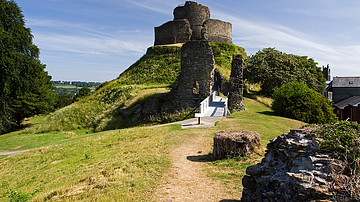
Definition
Motte and Bailey Castle
The motte and bailey castle was an early form of medieval fortification especially popular with the Normans in northern France and Britain during the 11th century CE. A single tower was built on (or partially within) the motte or earth mound...
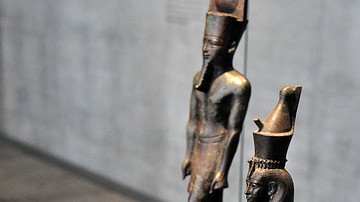
Article
Egyptian Gods - The Complete List
The gods and goddesses of Ancient Egypt were an integral part of the people's everyday lives for over 3,000 years. There were over 2,000 deities in the Egyptian pantheon, many whose names are well known - Isis, Osiris, Horus, Amun, Ra, Hathor...

Image
Motte and Bailey Castle, Bayeux Tapestry
A detail from the Bayeux tapestry showing the motte and bailey structure of Dinan during the 11th century Norman conquest of Britain. The wooden palisade sits atop the motte or mound. (Centre Guillaume le Conquérant, Bayeux, France)
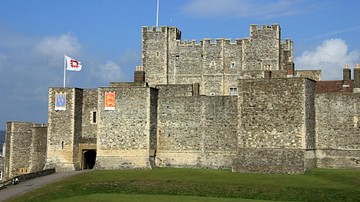
Definition
Medieval Castle
Medieval castles were built from the 11th century CE for rulers to demonstrate their wealth and power to the local populace, to provide a place of defence and safe retreat in the case of attack, defend strategically important sites like river...
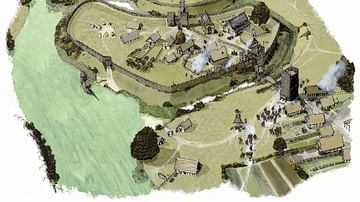
Image
Motte and Bailey Castle Diagram
A diagram of the motte-and-bailey castle of Huntingdon Hill, England. 11th century CE. Huntingdon was an urban centre with a mint, a market and several churches. The castle's construction was initiated by William the Conqueror in 1068 to...
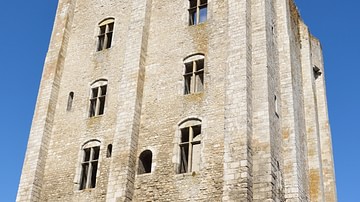
Definition
Castle Keep - The Safest Place in a Medieval Castle
The keep, located within a courtyard and surrounded by a curtain wall, was the heart of a medieval castle. The hall keep was a low building while the tower keep or donjon could have three or more floors and be topped by turrets and battlements...
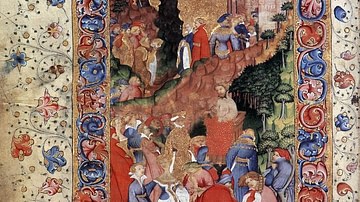
Article
Chaucer's The Book of the Duchess Full Text & Summary
The Book of the Duchess is the first major work of the English poet Geoffrey Chaucer (l. c. 1343-1400 CE), best known for his masterpiece The Canterbury Tales, composed in the last twelve years of his life and left unfinished at his death...

Article
The Impact of the Norman Conquest of England
The Norman conquest of England, led by William the Conqueror (r. 1066-1087 CE) was achieved over a five-year period from 1066 CE to 1071 CE. Hard-fought battles, castle building, land redistribution, and scorched earth tactics ensured that...

Article
The Life of Diogenes of Sinope in Diogenes Laertius
Diogenes of Sinope (c. 404-323 BCE) was a Greek Cynic philosopher best known for holding a lantern to the faces of the citizens of Athens claiming he was searching for an honest man. He was most likely a student of the philosopher Antisthenes...

Article
The Mesopotamian Pantheon
The gods of the Mesopotamian region were not uniform in name, power, provenance or status in the hierarchy. Mesopotamian culture varied from region to region and, because of this, Marduk should not be regarded as King of the Gods in the same...